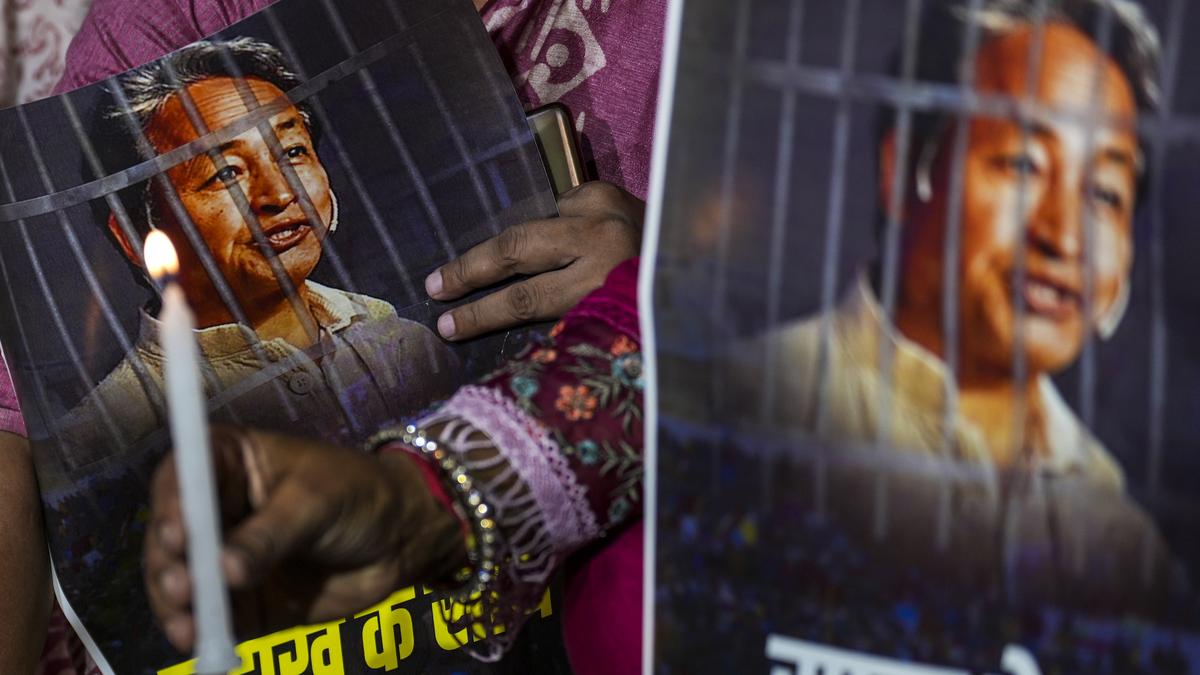Politics
Climate Activist Sonam Wangchuk Detained Under National Security Act

Climate activist Sonam Wangchuk was detained under the National Security Act (NSA) on September 26, 2023, following his hunger strike advocating for statehood and Sixth Schedule status for the Union Territory of Ladakh. His detention raises significant legal questions regarding whether his actions were prejudicial to public order or the security of the state.
Authorities arrested Mr. Wangchuk after violent protests erupted in Leh, resulting in the deaths of four civilians. The Supreme Court of India has clarified the distinction between ‘law and order’ and ‘public order’. The court states that public order refers to actions affecting the community at large, while law and order relates to broader legal violations. The court noted in its ruling on the Nenavath Bujji vs. State of Telangana case that “public order is the even tempo of life of the community.”
Legal Framework and Court Interpretations
The NSA allows both the central and state governments to detain individuals if they are deemed to act in a way that threatens India’s defense or public order. In prior rulings, the Supreme Court underscored the importance of justifying detention orders based on objective criteria and relevant material. Authorities must demonstrate that their subjective satisfaction is grounded in factual circumstances rather than arbitrary considerations.
Recent judicial decisions have emphasized that preventive detention is a serious measure that infringes upon personal liberty. The court has reiterated that the state’s inability to maintain law and order should not justify invoking preventive detention. Furthermore, habitual criminality alone cannot warrant such actions. The judiciary has expressed skepticism towards the ‘broken windows theory’, which suggests that minor offenses should be punished to prevent more significant crimes.
As the legal proceedings unfold, Mr. Wangchuk’s case highlights broader concerns regarding state responses to activism and civil liberties in India. The Supreme Court’s past judgments suggest a cautious approach to preventive detention, insisting on rigorous scrutiny of the grounds for such actions to protect individual rights.
Public Reaction and Implications
The detention of Mr. Wangchuk has spurred public debate on the balance between national security and civil liberties. Activists argue that such measures threaten democratic principles and stifle dissenting voices. His supporters emphasize the importance of his cause for the people of Ladakh, who are seeking greater autonomy.
As this situation develops, the implications for both the legal landscape and public discourse in India remain significant. The outcome of Mr. Wangchuk’s case could set a precedent for how authorities engage with activists and manage public dissent in the future. The ongoing discussions surrounding public order versus individual rights are likely to resonate beyond the immediate context of this incident.
-

 World5 months ago
World5 months agoSBI Announces QIP Floor Price at ₹811.05 Per Share
-

 Lifestyle5 months ago
Lifestyle5 months agoCept Unveils ₹3.1 Crore Urban Mobility Plan for Sustainable Growth
-

 Science4 months ago
Science4 months agoNew Blood Group Discovered in South Indian Woman at Rotary Centre
-

 World5 months ago
World5 months agoTorrential Rains Cause Flash Flooding in New York and New Jersey
-

 Top Stories5 months ago
Top Stories5 months agoKonkani Cultural Organisation to Host Pearl Jubilee in Abu Dhabi
-

 Sports4 months ago
Sports4 months agoBroad Advocates for Bowling Change Ahead of Final Test Against India
-

 Science5 months ago
Science5 months agoNothing Headphone 1 Review: A Bold Contender in Audio Design
-

 Top Stories5 months ago
Top Stories5 months agoAir India Crash Investigation Highlights Boeing Fuel Switch Concerns
-

 Business5 months ago
Business5 months agoIndian Stock Market Rebounds: Sensex and Nifty Rise After Four-Day Decline
-

 Sports4 months ago
Sports4 months agoCristian Totti Retires at 19: Pressure of Fame Takes Toll
-

 Politics5 months ago
Politics5 months agoAbandoned Doberman Finds New Home After Journey to Prague
-

 Top Stories5 months ago
Top Stories5 months agoPatna Bank Manager Abhishek Varun Found Dead in Well









